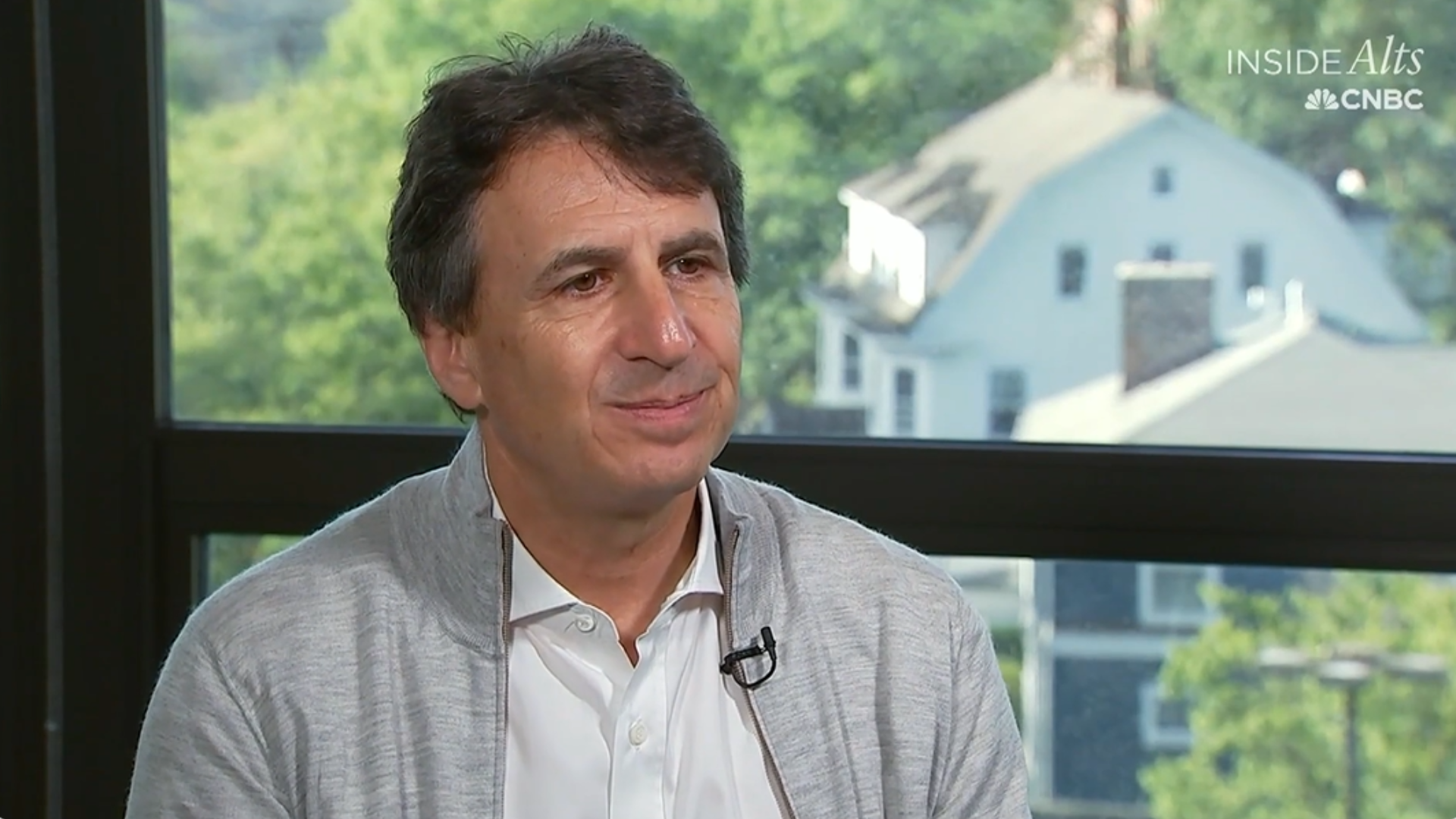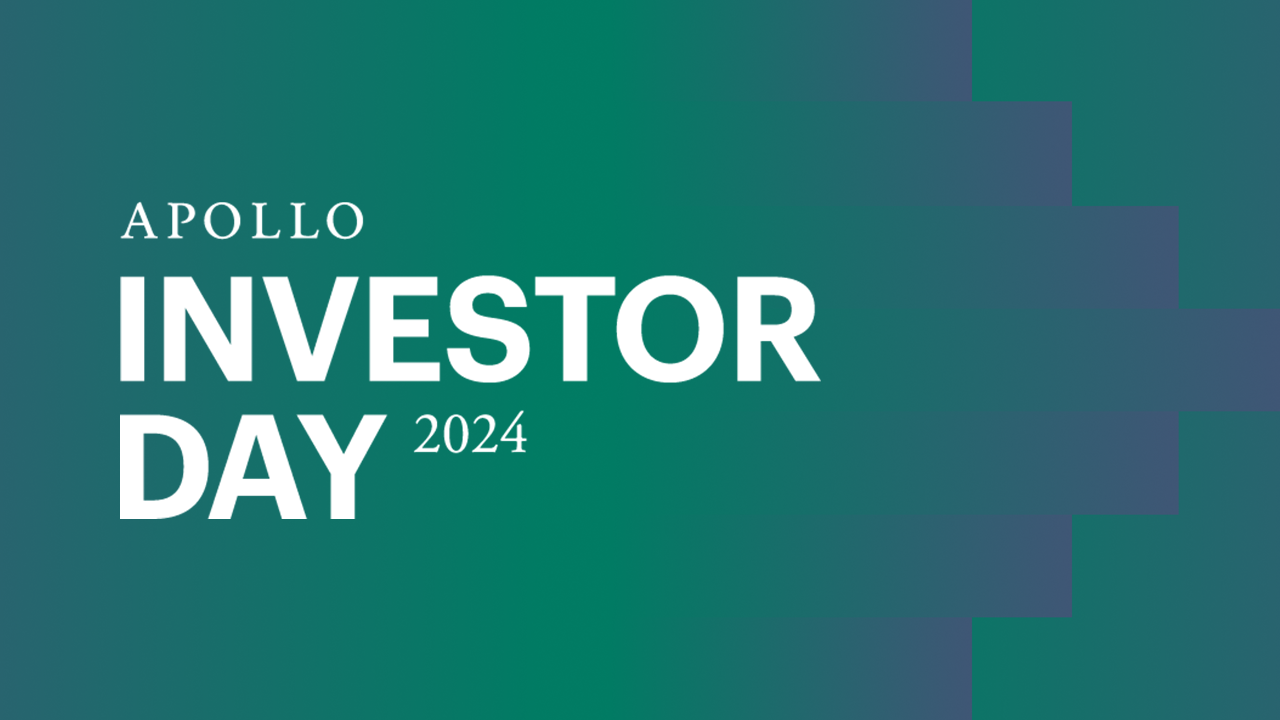July 30, 2024
Apollo CEO Says Investors Will Capture More of the Lending Market

This article was originally published in Nikkei Asia on July 16, 2024.
Demand booms for low-liquidity, higher-return credit assets, Marc Rowan says
Apollo Global Management made its name as an investor in the bare-knuckle world of private equity but has shifted its focus to private credit over the last decade.
The U.S.-based investor is increasingly becoming a competitor to commercial banks, but does it have any blind spots? Nikkei spoke with CEO Marc Rowan, who is focused on developing the company's business in Japan.
Rowan heads the company following the departure of fellow co-founders Leon Black and Josh Harris. Under Rowan's direction, Apollo has become a trendsetter on Wall Street, building a private credit business to serve its retirement services arm, having helped start and then merged with an insurer called Athene.
Edited excerpts from the interview follow.
Q: Apollo started as a private equity investor, but now you're focused on private credit (loans). How much of your assets under management take the form of credit, and how much is in equities?
A: The asset management business ended 2023 at $650 billion, approximately $500 billion of which was private credit, mostly investment-grade, and $150 billion of it was equity. Of the $650 billion, approximately half comes from the insurance affiliate Athene, so our own capital, and half comes from investors.
The way the market speaks about private credit today is as a relatively small market, a $1.5 trillion market. We actually see the private credit market as a $40 trillion market, mostly investment-grade. We lent almost $4 billion to ADNOC, the Abu Dhabi National Oil Co. We lent more than $5 billion to SoftBank here in Japan. We've also lent to AT&T in the U.S. Our balance sheet is more than 90% investment-grade.
Q: So why is an investor doing private business loans like a bank?
A: Credit only comes from one of two places. It can come from the banking system, or it can come from the investment marketplace. In the investment marketplace, it can come from sources that we know very well, so bonds. ... Or it can come from institutions -- private credit. Private credit -- in your newspaper, as well as others, people think of it as direct lending. When in actuality everything that would be on a bank balance sheet is private credit.
In 2008, we were $40 billion of assets under management. Many of the banks, insurance companies that existed at the time were quite weak, recovering from the effects of the financial crisis. Interest rates were near zero or negative around the globe. And for long-term investors who had pension funds or other requirements, they needed to find ways to earn yield. Investors' needs for yield in a low-interest-rate environment encouraged us to start originating private credit.
Q: So the further tightening of banking regulations has opened up room for investment funds to expand their lending business.
A: I think the banking system is very safe. But the regulatory system around the world everywhere is pushing banks to do less and it's pushing investors to do more. And we can see that in the U.S. with the government asking banks for more capital. We can see it in Europe with Basel, an international committee on banking supervision. We can see it in Hong Kong. We can see it in Australia.
A bank borrows in the form of deposits. That's borrowing short and lending long. Insurance companies, institutional investors, borrow long and lend long. So from a financial system resiliency standpoint, there are certain things that the banking system does very well, and there are certain things that the investment marketplace does very well.

Q: That means the role of banks would grow smaller and smaller.
A: If you ask, do I think the banks' role as lender will decline, I think the banks' role as lenders will decline, yes, but they will still play a critical role. Their role will not always be the traditional role that we think of from 100 years ago. The role of a bank is changing. The bank is now an adviser to businesses and individuals, they're a capital market support, they're a service provider, they're a payments provider.
We don't provide investors with equity or M&A advice, or hedging, or derivatives, or foreign exchange, or payments, or credit cards. The only thing we want is the asset. Are we competitors to the banking system? I don't think so. We are partners.
Q: Global interest rate hikes will make the financing environment more difficult. Is this sustainable?
A: My observation would be, most times banks make more money when rates go up. And in fact, that is what has happened almost across the world. The ability to charge more to their borrowers has expanded faster than their cost of funds. Therefore, their margins have widened. It has been fundamentally good for banks, up until the point when their borrowers experience financial distress.
The U.S. has been the largest recipient of foreign direct investment for the past three years. Because of the semiconductor-focused CHIPS Act, we are reshoring our supply chain and we are increasing our military production base. This is all stimulative to employment. So we are unlikely to have a traditional recession.
And now you look at the level of interest rates, and where's the stock market? Booming. The housing market? Booming. The jobs market? Booming. First quarter this year, we saw the largest issuance of high-yield and investment-grade bonds in a very long time. So I don't really see signs of tightening or restrictive conditions.
So is this sustainable? I would say the following: By historical measures, valuations seem to be very high. Valuations of the top 10 public companies seem to be extraordinarily high. History has said that when valuations are very high and concentration is high, usually equity returns are not that good when they follow.
Q: In that case, is this a risky market for investing?
A: Fundamentally, if someone wants exposure to the diversified economy, they want access to public and private markets. Right now in the stock market, 10 stocks are 35% of the S&P. Ten, 15 years ago, we had 8,000 public companies in the U.S. We now have fewer than 4,000 public companies. And so I think what's happening in the minds of various ... educated investors, is they are rethinking the notion of public and private.
So if you think about it, when I started almost 40 years ago, public was safe and private was risky. Well, what's the world today? We're just talking about differing degrees of liquidity [in terms of redemption]. But what if they could earn better returns and have lower risk by taking a little less liquidity? Is less liquidity actually a risk? Because not many investors, not many wealthy individuals, not many individuals need 100% of their money every week. I think private markets will grow substantially more than public markets over the next few years.
Q: How would you evaluate the potential for growth in the Japanese market, which is shifting from savings to investment?
A: We're in Japan with the full range of product solutions. And if you think about the full range, that includes private equity, hybrid equity and private credit, all the way through investment grade. But it also includes retirement services solutions. Insurance companies and trust banks, which do not have high liquidity, here deal with Japanese customers directly.
Think private investment-grade as something that yields 150 or 250 basis points (1.5% or 2.5%) more but with the same high quality credit rating. Usually investors earn this excess spread in exchange for being less liquid. And so a retiree, in some ways, is the perfect market, directly or indirectly, to take illiquidity. What they want is an income stream over a long period of time. They don't want the ability to trade every day.
The entire world is short guaranteed lifetime income. Places like Japan are short, even more, guaranteed lifetime income, and what we have been able to do so is to build a retirement services business that creates safe yield.
In credit, our focus is on the private investment grade market, both in terms of asset origination capabilities and on the liabilities side, serving retirees, where we have found to be very good match in Japan. Japanese investors tend to share in conservative philosophy and our focus on safe yield. We can bring a lot of solutions to bear when partnering with Japanese insurers and investors, and so we expect continued growth in the market.







